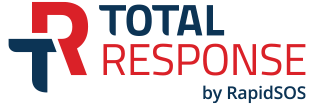If you work for a 911 agency or PSAP, you’re in the business of saving lives, and a good system and partner can be your secret weapon. In the fast-paced world of emergency response, it’s crucial to have the right tools at your disposal.
That’s where a 911 Protocol Software comes into play. A combined software system with police, fire, and medical protocols helps your agency gain meaningful and actionable insight that drives improvement in how calls and information are handled to determine dispatch.
This check list focuses on vendor selection. Consider whether the vendor and system truly act as partners in improving response times, enhancing processes, and supporting your team. Use these questions to help evaluate and select the right provider and partner, with an emphasis on reliability, support, and a proven track record.
 PARTNERSHIP
PARTNERSHIP
• Are you working with a vendor that truly understands and adapts to your agency’s needs, making your job easier and more efficient?
 INDUSTRY STANDARDS
INDUSTRY STANDARDS
• Does the vendor have a proven, patented approach to ensure that your protocols meet both industry and local standards?
• Does the vendor actively support your local medical director, if needed, in making necessary protocol adjustments?
• Does the vendor provide in-house configuration capabilities to help stay on top of local policy changes?
 INTEGRATED QUESTIONING
INTEGRATED QUESTIONING
• Does the vendor offer software that combines police, fire, and medical questions, making it easy to identify the resources needed and ensure responder safety?
 EFFICIENT INFORMATION COLLECTION
EFFICIENT INFORMATION COLLECTION
• Are there keywords in the questions to speed up information gathering, so you don’t have to read the entire question?
 FLEXIBLE QUESTIONING
FLEXIBLE QUESTIONING
• Does the vendor allow you to adapt the questions based on the caller type without being tied to a rigid script?
 SITUATION-FOCUSED PROTOCOLS
SITUATION-FOCUSED PROTOCOLS
• Do the vendor’s protocols prioritize questions about the situation, helping you better protect lives, property, and evidence?
 PROTOCOL FLEXIBILITY
PROTOCOL FLEXIBILITY
• Can your agency’s authorized personnel fully customize the provided protocols to align with your specific requirements?
 COST-EFFECTIVE CUSTOMIZATION
COST-EFFECTIVE CUSTOMIZATION
• Are tools provided for customization without incurring extra expenses?
 AUTONOMY OVER PROTOCOL CHANGES
AUTONOMY OVER PROTOCOL CHANGES
• Does the vendor allow modifications to protocols without requiring their board’s approval?
 OPEN API ACCESSIBILITY
OPEN API ACCESSIBILITY
• Is there an open API available that’s user-friendly and manageable, even with software updates?
 INTEGRATION CAPABILITIES
INTEGRATION CAPABILITIES
• Are integrations like CPR Counter, PulsePoint AED, and what3words offered by the vendor?
 CALL MONITORING AND ANALYTICS
CALL MONITORING AND ANALYTICS
• Does the vendor grant instant access to call monitoring, including real-time feedback for telecommunicators and analytics?
 ON DEMAND TRAINING AND SUPPORT
ON DEMAND TRAINING AND SUPPORT
• Does the vendor provide unlimited, online, self-paced training as part of the software package?
• Does the vendor provide you with the support you need to get new hires working faster?
• Does the vendor provide a flexible training program to free up your resources?
• Does the vendor provide ongoing training on how to use the software?
• Does the vendor offer implementation support from industry experts to tailor the software to your agency’s needs?
• Does the vendor provide 24/7 technical support?
• Are updates and upgrades part of the maintenance plan?
• Can you reach out to the vendor’s customer support for answers to your questions?
• Do you have access to a dedicated Customer Success Representative for personalized support?
Total Response checks all these boxes. Interested in learning more? We’d love to show you how the Total Response Difference is a PSAP game changer.









